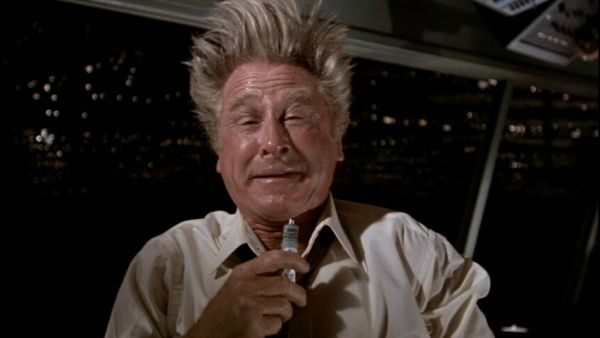General Discussion
Related: Editorials & Other Articles, Issue Forums, Alliance Forums, Region ForumsThe biggest holder of U.S. government debt isn't who you think.
China is a distant second, just ahead of "Other investors and savings bonds".
The winner, with around 40% of all U.S. debt?
The Fed (and other intragovernment holdings).
http://finance.yahoo.com/news/biggest-holders-of-us-gov-t-debt.html
As the U.S. government spends an unprecedented amount of money to fix the economy, there is an equally great need to raise the cash to pay for it. This is accomplished through borrowing, whereby Uncle Sam sells Treasury securities of varying maturity.
For investors, government bills, notes and bonds are considered safe because they have a guaranteed rate of return, based on faith in future U.S. tax revenues. The government has been partially funding operations via Treasury securities for decades.
This borrowing adds to the national debt, which has recently surpassed $15 trillion and is rising every second. The amount of debt is quickly approaching the federal debt ceiling, a legal limit to borrowing that currently stands at $16.4 trillion....
That’s right, the biggest single holder of U.S. government debt is the Federal Reserve system. The Fed's system of banks and other U.S. intragovernmental holdings accounted for a stunning $6.328 trillion in U.S. Treasury debt in Spetember 2011 (the most recent number available). The amount is an all-time high as the Federal Reserve continues to expand its balance sheet, partially to purchase U.S. government debt securities.
![]()
Remember that next time Jon Stewart makes a wisecrack about us "having to park the car down the block so China doesn't find it". And the next time Congress ties itself up in knots over the debt ceiling.
tabatha
(18,795 posts)Jon Stewart has a point. I wonder what the China numbers were like when Bush left office.
flexnor
(392 posts)and it's really, really good at it
i treid to buy bonds with Flexnor Reserve Notes, but they turned me down ![]()
Rex
(65,616 posts)Great...looks like I picked the wrong week to quit sniffing glue.

KansDem
(28,498 posts)Which, of course, the banks are "loaning" back to us at a much higher interest rate...
flexnor
(392 posts)no wonder their bonu$e$ are so big
it's sheer genius
Viva_Daddy
(785 posts)Banks only create "wealth" for themselves and their "owners". For everyone else, they only create debt and then "sell" it to us in the form of loans.
Yo_Mama
(8,303 posts)You can't mix in intragovernmental and other amounts. As of 1/31/2012:
http://www.savingsbonds.gov/NP/BPDLogin?application=np
Intragovernmental is debt the government owes to itself. That contains amounts like the Federal retirement funds, the SS, DI & Medicare trust funds, the FDIC fund, highway fund, etc. Intragovernmental debt arises when the government takes tax receipts or fees and uses them for purposes other than their budgetary purpose. These amounts represent future borrowings or future higher taxes. They are not monies that have been borrowed from the public.
Intragovernmental totals almost 4.8 trillion. Debt Held By The Public (debt actually floated) is a bit over 10.5 trillion.
The ONLY amounts foreign interests could hold, because they are the only amounts actually borrowed, are in that 10.5 trillion bucket. Of that 10.5 trillion bucket, the Fed owns 1.6 trillion in US Treasuries:
http://www.federalreserve.gov/releases/h41/Current/
That's 15.1%.
To find out who owns the rest of it, you would normally use the Treasury bulletin. The last issue is December:
http://www.fms.treas.gov/bulletin/index.html
You are going to click on the link that says "Ownership of Federal Securities", which will open up a new document. Go down to Table OFS-2, and you'll see that in June, foreign and international ownership was estimated at 4.5 trillion. That's the last best total we have. From the first link, you can pull a report. We ended June 2011 with 9.742 trillion, so at that point, non-domestic ownership of US total issued debt was a bit over 46%.
That's a very different picture. WaPo's reporting on this stuff continues to get weirder and more inane.
OMG - That's CNBC!
KamaAina
(78,249 posts)1.6T to 1.1T.
Yo_Mama
(8,303 posts)Buying and selling them is one of the ways you control a fiat currency.
The current level is historically excessive, but not hugely so in relation to issued debt because the debt itself has ballooned so fast.
January 25th, 2000:
http://www.federalreserve.gov/releases/h41/20010125/
Currency in circulation was 580 billion. The Fed held almost 517 billion in government securities. Federal Debt Held By the Public was approximately 3.6-3.7 trillion (they didn't publish a day-by-day total back then, I'm taking that from September 1999, and using the higher end). So the Fed held almost 14% of the outstanding total.
Seriously, this is one of the most ignorant and misleading articles I have ever seen in the press.
The significance of the 46% held by foreigners is that currency shifts (inflating the US dollar) could rapidly cause a sell-off. This is in sharp distinction to a country such as Japan, which still has about 90% of its huge debt held internally.
Lightning_McQueen
(16 posts)Make the rich pay for our amnesty!